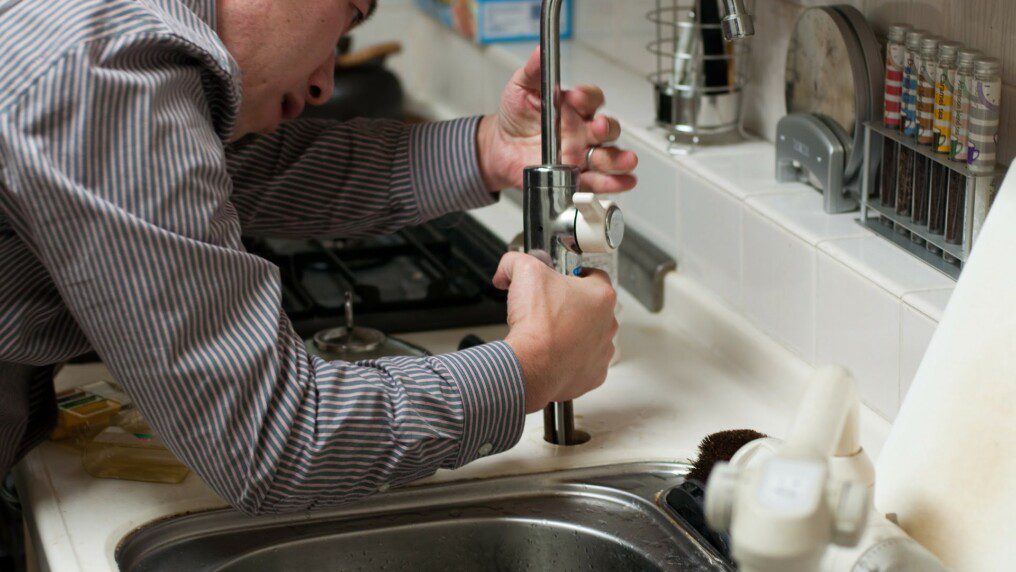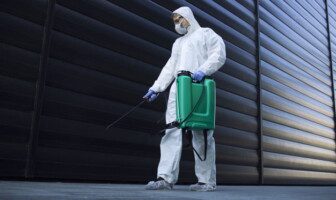
From clogged bathtubs to leaking toilets, you are most likely to experience plumbing problems regardless of how new your home may appear. Plumbing issues are everyday situations in any home and tend to occur at the worst unexpected time, requiring urgent fixation.
A small leak can cause significant damage to your house, and the first thing you are likely to do is call a plumber. For instance, your drainage or water supply system might have issues, and this requires a Plumber Scarborough. However, it’s vital that you are equipped with basic plumbing skills to fix the issue as soon as possible and, in turn, prevent further damage to your home.
However, when you are carrying out plumbing repairs alone, it’s crucial that you use the right tools for every task while still following the laid down procedure and regulations to avoid further damage. Below are some handy tips and tricks to enable you to fix that small leak without necessarily calling a professional plumber.
1. Be always on the lookout for water leaks:
Small leaks are common plumbing issues in homes, which not only lead to the loss of enormous amounts of water but also damage the house by offering suitable conditions that favor the growth of mildew and mold. Small leaks tend to get bigger with time and, therefore, should be fixed immediately after they are spotted.
There are several ways in which you can fix a leak in a pipe, including using a piece of heavy rubber as a temporary patch or using a hose clamp with a rubber patch. If the leak is originating from a pipe joint, ensure the joint is tightened by use of an adjustable spanner. After spotting leaks, always turn off the water supply and try to fix it immediately.
One of the most often overlooked reasons for water leaks is drainage issues. If the drainage pipes are not working properly, they can cause the buildup of water and its associated wastages in pipes. Once this gets to an unbearable level, the pipes can get damaged and leak water.
While you might think that a broken pipe is the real culprit, in reality, it can be the drain. According to plumbing experts, relining the drain can be an effective way to check the problem and ensure that it does not happen. If you want to reline your drain, please visit- https://royalflushsa.com.au/drain-relining/.
2. Fixing sink and toilet clogs:
Blocked sinks and toilets always start with a slow-moving drain, which may fail to catch your attention. When the slow-moving drain is left unattended for an extended period, it eventually clogs with the water, even spilling over into the flow.
The first action in unclogging clogged sink and toilet clogs is to use plungers to remove small particles from the drain. However, sometimes the plunger may fail to remove the clog, especially if it’s a hair or grease clog, and instead push them further into the drain. In such situations, you should use a wet/dry vacuum to suck out water from the toilet bowl and also the clogged object.
You can also use a snaking tool to clear the drain to allow water flow. For clogged showerheads, you should take a big Ziplock bag and fill it with an element that often finds presence in kitchens: white vinegar. You need to place the same inside your showerhead.
The showerhead will absorb the vinegar for a couple of days, which will, in turn, release chemicals that will break down the clog. Clogged toilets, showerheads, and sinks should also be fixed immediately after they are realized. If your bathtub and toilets plug more often, then you should install a hair catcher in your drains since long hair combined with grease is notorious for causing massive clogs in pipes.
3. Removing sediments from the boiler:
The accumulation of sediments in the boiler usually damages it, and in prolonged accumulation cases, you will require boiler repair services. However, the deposits can be removed early enough by cutting down the supply of water and electricity to the boiler. The next step involves taking a garden hose and linking it to a drain.
Once you have done that, you need to empty the tank in its entirety. To remove the remnants, you need to switch on the supply of water and let it rinse the bottom of the tank so that it flushes everything out in a few minutes. This will help to eliminate minerals and sediments at the bottom of the tank.
4. Carrying for the plumbing system:
The best way to prevent damage to your home’s plumbing system is to protect it from damage caused by hard water, which actually corrodes pipes, leaving them more susceptible to breakages and leaks. To help maintain the water quality in your plumbing system, you should install a water softener, which prevents the build-up of mineral deposits in the pipes and prevents the enormous effects of hard water on your hair and skin.
5. Appropriate disposal of garbage:
Some plumbing issues usually arise from poor disposal of garbage; therefore, cleaning your sink’s garbage disposal is crucial to prevent many plumbing issues and extend the life of your sink. When making regular plumbing checks, always ensure that the sink’s overflow holes are clean to prevent any blockage. Also, avoid cleaning the overflow holes with detergents and other cleaners, as they may be corrosive.
Moreover, whenever you clean your garbage, ensure that your faucet is run with cold water. There are some moments when you will experience foul odor emanating from the garbage disposal. In such situations, you need to take some ice and some slices of lemon and turn on the garbage disposal switch, but be careful; you should do this without water. This will ensure that your disposal machine is clean and smells good, but it will also help sharpen the blades.
This will not only clean the mechanism and eliminate the smells but also sharpen the blades.
The Bottom Line:
Most plumbing issues require urgent repair, and sometimes, a professional plumber may not be readily available to handle the repairs in advance. It’s therefore crucial that you are at least equipped with some basic skills and tricks to handle these repairs in time. However, if you think that you may do more harm to your plumbing system, the best thing to do is turn off the water supply system from the mains and urgently call a professional plumber.
Read Also:




























